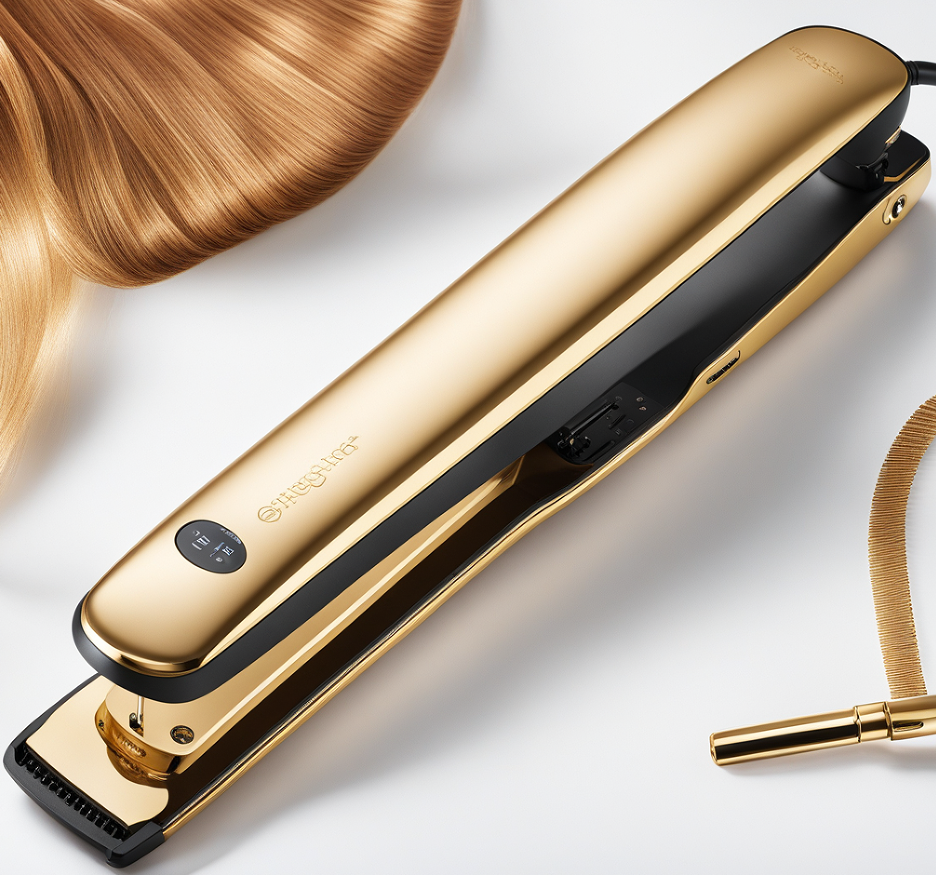How to Find Wholesale Flat Iron Manufacturers for Custom Flat Irons
Flat irons have become an essential tool for many people in their daily hair care routine. With the rise of the beauty industry, the demand for flat irons has also increased. As a result, many businesses are looking for wholesale flat irons manufacturers to meet their needs for custom flat irons. However, finding a reliable and trustworthy manufacturer can be a challenging task. In this article,
What is a flat iron
A flat iron, also known as a hair straightener, is a styling tool used to straighten and smooth hair. It typically consists of two flat, heated plates that are pressed together to clamp and straighten sections of hair between them. Flat irons use heat to break down the hydrogen bonds in the hair shaft, allowing the hair to be reshaped temporarily.
The plates of a flat iron can be made from various materials, including ceramic, tourmaline, titanium, and others. Each material has its own set of properties that can affect how the flat iron performs.
Flat irons are popular for creating sleek, straight hairstyles, but they can also be used to add curls or waves to the hair, depending on how they are manipulated during styling. It’s important to use a heat protectant spray or serum before using a flat iron to minimize heat damage to the hair.
Researching Wholesale Flat Iron Manufacturers
When researching wholesale flat iron manufacturers, it’s essential to consider various factors to ensure that the chosen manufacturer meets your business’s specific needs and requirements. Here are some key points to consider when researching wholesale flat iron manufacturers:
- Reputation and Reliability: Look for manufacturers with a strong reputation for producing high-quality flat irons. Check online reviews, testimonials, and industry forums to gauge the manufacturer’s reliability and customer satisfaction.
- Product Range and Customization Options: Evaluate the manufacturer’s product range and customization options. Ensure that they can accommodate your specific needs, such as custom branding, packaging, or unique design features.
- Quality Control Measures: Inquire about the manufacturer’s quality control processes to ensure that the flat irons meet industry standards and your quality expectations. This may include material sourcing, production standards, and testing procedures.
- Pricing and Terms: Compare pricing and terms from different manufacturers to find the best value for your budget. Consider factors such as minimum order quantities, payment terms, and shipping costs.
- Communication and Responsiveness: Assess the manufacturer’s communication and responsiveness. A reliable manufacturer should be prompt in addressing inquiries, providing detailed information, and offering clear communication channels.
- Compliance and Certifications: Ensure that the manufacturer complies with industry regulations and standards, such as safety certifications, environmental regulations, and ethical manufacturing practices.
- Samples and Prototypes: Request samples or prototypes to assess the manufacturer’s capabilities and product quality firsthand. This allows you to evaluate the flat irons’ performance, durability, and overall design.

By thoroughly researching wholesale flat iron manufacturers and considering these key factors, you can make an informed decision and establish a successful partnership with a manufacturer that aligns with your business goals.
Once you find a reliable wholesale flat irons partner, then you can also get wholesale price for other tools, such as high speed hair dryer, curling iron, hair straightener brush and many other hair styling tools.
Customization Options and Quality Control
One of the benefits of working with a wholesale flat iron manufacturer for custom flat irons is the ability to customize the product to meet specific needs. When researching wholesale flat iron manufacturers for custom flat irons, it’s crucial to understand the customization options available and the quality control measures in place. Here’s a closer look at these two important aspects:
Customization Options:
- Custom Branding: Inquire about the manufacturer’s ability to incorporate your brand logo, colors, and other branding elements into the flat iron design.
- Packaging: Discuss options for custom packaging, including branded boxes, inserts, and other packaging materials that align with your brand’s image.
- Design Features: Determine if the manufacturer can accommodate specific design features or modifications to the flat iron, such as unique shapes, color variations, or special finishes.
- Material and Component Options: Explore the range of materials, plates, and components available for customization to ensure they meet your desired specifications.
Quality Control:
- Material Sourcing: Understand the manufacturer’s process for sourcing raw materials and components, ensuring they meet quality standards and are suitable for your custom flat irons.
- Production Standards: Inquire about the manufacturer’s production processes, including quality checkpoints, inspection procedures, and adherence to industry standards.
- Testing and Certification: Determine if the manufacturer conducts rigorous testing and holds relevant certifications to validate the quality and safety of the custom flat irons.
- Warranty and Return Policies: Discuss the manufacturer’s warranty coverage and return policies, ensuring that there are clear guidelines for addressing quality-related issues.
By thoroughly evaluating the customization options and quality control measures, you can ensure that the wholesale flat iron manufacturer can meet your specific customization needs while maintaining high quality standards. This approach helps to establish a reliable and successful partnership for producing custom flat irons that align with your brand’s requirements and quality expectations.
Placing Orders and Establishing a Relationship
When placing orders with a wholesale flat iron manufacturer and aiming to establish a long-term partnership, it’s essential to approach the process with a strategic and collaborative mindset. Here are key considerations for placing orders and fostering a lasting relationship:
- Clear Communication: Maintain open and clear communication with the manufacturer. Clearly convey your order requirements, including customization details, quantities, delivery timelines, and any specific quality standards.
- Transparent Expectations: Clearly outline your expectations regarding product quality, packaging, and any other customization elements. Discuss any potential challenges or specific requirements upfront to ensure alignment.
- Timelines and Delivery Schedules: Establish clear timelines for order placement, production, and delivery. Discuss lead times, shipping methods, and any potential delays to ensure a smooth and efficient order fulfillment process.
- Payment Terms: Discuss and agree upon payment terms that work for both parties. This may include initial deposits, milestone payments, or other mutually beneficial payment arrangements.
- Quality Assurance: Emphasize the importance of quality control and assurance. Request information about the manufacturer’s quality control processes and ensure that they align with your quality expectations.
- Feedback and Collaboration: Provide constructive feedback on the initial orders and collaborate with the manufacturer to address any areas for improvement. A collaborative approach fosters a stronger partnership and helps refine future orders.
- Long-Term Commitment: Express your interest in establishing a long-term partnership. Communicate your intention to place recurring orders and explore the potential for future collaborations or product developments.
- Building Trust: Focus on building a trusting relationship with the manufacturer. Consistent communication, reliability, and mutual respect contribute to a strong and enduring partnership.
By approaching the order placement process with a focus on clear communication, quality assurance, and a long-term commitment, you can lay the foundation for a successful and enduring partnership with a wholesale flat iron manufacturer. This approach fosters collaboration, trust, and mutual benefit for both parties.
What will be the cost to make your custom flat irons.
The cost of making custom flat irons can vary depending on a range of factors. Here’s a general breakdown of the potential costs involved:
- Part Design Cost: This includes the cost of designing the physical components of the flat iron, such as the housing, heating plates, handles, and other parts. The cost can involve design software, labor, and any specialized tools or equipment needed for the design process.
- PCB Design Cost: If the flat iron incorporates electronic components, such as a microcontroller, temperature sensors, or a display, the cost of designing the printed circuit board (PCB) and related electronics needs to be considered. This cost includes the design software, labor, and prototyping materials.
- Prototyping Cost: Creating physical samples of the custom flat iron to test the design, functionality, and performance incurs costs. This includes materials, labor, and any specialized prototyping equipment or services required to create functional prototypes.
- Mold Manufacturing Cost: If the custom flat iron requires plastic mold, metal injection molding, or aluminum die casting parts for its housing or other components, the cost of manufacturing the molds needs to be considered. This cost includes the design and fabrication of the molds, as well as the materials used.
- Testing Cost: This includes the cost of conducting various tests to ensure the flat iron meets safety, performance, and quality standards. Testing costs can encompass materials for testing, specialized equipment, third-party testing services, and labor.
- Certificate Cost: Obtaining certifications such as safety certifications (e.g., UL, CE), compliance certifications (e.g., RoHS), or performance certifications can incur costs. These costs include application fees, testing fees, and any necessary modifications to meet certification requirements.
It’s important to note that these costs can vary significantly based on factors such as the complexity of the design, the scale of production, the need for specialized expertise, and the specific requirements for testing and certification. Additionally, the costs can be influenced by the choice of suppliers, the geographic location of manufacturing, and the overall quality standards desired for the custom flat irons.
In conclusion,
finding a wholesale flat iron manufacturer for custom flat irons can be a challenging task. However, by researching potential manufacturers, communicating effectively, and ensuring quality control measures are in place, businesses can find a reliable and trustworthy manufacturer to meet their needs. The benefits of working with a wholesale flat iron manufacturer include the ability to customize products and establish a long-term relationship for future orders and collaborations.



